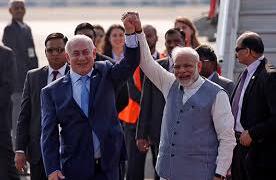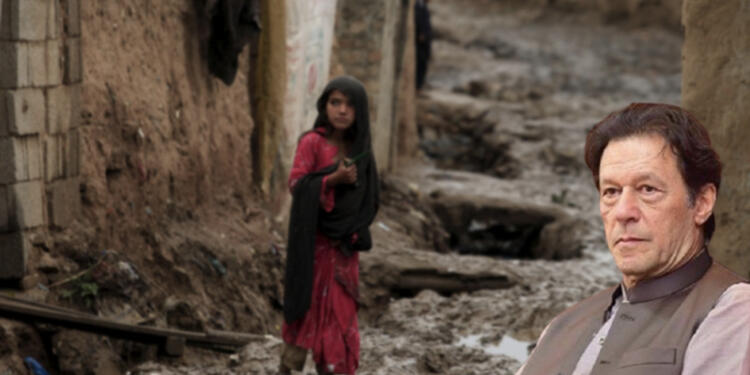- Pakistan is witnessing the highest inflationary trends in its 70-year old history.
- The government, however, is not applying economic logic to decrease the trend, instead, the government is relying on short-term measures to somehow quell the public anger for a brief period.
- The shortcut taken by the Imran Khan administration is not going to work as the country is already under huge debt and furthermore, debt has the potential to create internal war resulting in the Balkanisation of the south-Asian minnow.
Pakistan, the supposedly only republic state in the Islamic world, is on the verge of extreme internal wars and conflicts. The poverty caused due to historic inflation rates in the country will degenerate further into a struggle for resources.
Imran Khan has brought in the worst inflation in 70 years
Pakistan is witnessing its worst inflation in 70 years. Currently, it stands at more than 9 per cent and has driven many into suicides. Ghee, sugar, petrol, poultry, electricity have all seen a rise of a minimum of 48 per cent to more than 100 per cent in various other segments.
According to data from the Federal Bureau of Statistics of Pakistan, various radical changes in inflationary statistics were observed after the formation of the Imran Khan government
- The price of 11.67 kg of LPG cylinder has increased by 51 per cent from Rs 1,536 to Rs 2,322.
- The petrol prices have soared by more than 49 per cent marking a change from Rs 93.80 per litre to Rs 138.73 per litre.
- Electricity, which drives most of the industrial activity saw a 57 per cent increase in its price per unit charged by the Imran Khan government. Its rate increased from Rs 4.06 per unit to at least Rs 6.38 per unit
Among edible items
- Ghee prices more than doubled in the period and is currently selling at Rs 356 per kg.
- Flour, which is necessary intake has witnessed a rise of more than 52 per cent, while plain double bread prices have increased by more than 40 per cent. Another necessary intake, Rice prices soared by more than 30 per cent.
- Tea, which is a major source of refreshment for an average Pakistani is also bearing the brunt of inflation as Tea leaves prices have gone up by 27 per cent, milk has gone up by 32 per cent while Sugar prices, which earlier were sold at Rs 54 per kg has now crossed the three-digit mark.
Huge internal strifes due to price rise
The situation has created a ruckus in the country. News of suicides and disruption have flooded the local media. In Karachi, a 27-year old shoe seller committed suicide by setting himself on fire due to being ashamed of his inability to feed himself and his family. Mohammed Ghufran, a 47-year old shopkeeper in Mardan, Pakistan’s north-western province was arrested by the government for cursing Imran Khan on skyrocketing inflation. According to him, all of his contacts were cursing the government and regretted bringing Imran Khan to power.
Meanwhile, the opposition has decided to launch strikes, protest marches all around the country. In Lahore, Pakistan Muslim League(N) decided to stage protests carrying daily life utility food items in their hands. Shahbaz Sharif, PML(N) president while speaking on the issue, said-“The economic condition of the country and its people would not improve unless we get rid of this tyrannical government.” Similarly, The Pakistan Democratic Movement (PDM), an opposition alliance has decided to hold a march against inflation in Quetta on November 17. According to them, it will be the last nail in the coffin for the Imran Khan government.
The government’s solution will only worsen the crisis
Meanwhile, the Imran Khan government is trying to rely on short-term measures to quell the voice of dissent. The government has borrowed $3bn as financial assistance from Saudi Arabia, in turn worsening the country’s debt crisis as well as the whatever left credential. The government has also announced to pump in a 120 billion-rupee relief package providing subsidies on essential food items. The government is also borrowing from the financial markets to continue its expenditure, but market rates and the low credentials of the government are making sure that the solution will worsen the problem.
Read more: We thought Imran Khan would be the one to finish Pakistan’s economy. But he lost to locusts
Experts also disagree with the government’s measures towards curbing inflation. According to the Economist Intelligence Unit (EIU), inflation will rise more at least for the next 6-months. In its assessment, EIU said, “We continue to expect that upward pressure on consumer prices will persist during the first half of 2022, as the global economic recovery is likely to keep commodity prices elevated and the rupee will continue on a depreciatory path despite short-term relief in the form of a financial assistance package from Saudi Arabia due to Pakistan’s persistently wide trade deficit and strong inflationary pressures,”
Imran Khan’s goal is to destabilise India, not stabilise Pakistanis’ daily lives
As reported by the TFI, ever since the Imran Khan government came to the power on the back of its promise of strengthening the economy and creating jobs, it has trudged along the exact opposite route. It has doubled down on its engagement with the Taliban and has been promoting terrorism against India. Lately, even the Taliban has been ditching Pakistan calling Imran Khan a puppet. En route to its weakening relationship with the Taliban, it has witnessed a huge decline in its popularity, and various violent, as well as non-violent forces in the country, are on the verge of breaking the minnow into furthermore states.
Read more: Pakistan gleefully kept creating terror groups. Now all of them are coming for Imran Khan
While Taliban Khan is rejoicing over his nexus with China and the Taliban, its own population is on the verge of collapse. As the price of food items go up, people’s focus shifts from secondary activities like TV entertainment, celebrities’ gossips, politics, international relation, etc towards gathering more resources to feed themselves.
As far as Pakistan’s inflation is concerned, if the average Pakistani’s salary had increased by at least twice during the last decade, it could help as stabilising factor, but Pakistan’s per-capita income is one of the lowest in the world. However, the Pakistan government is hell-bent on borrowing more and pushing more money into the economy, which ultimately leads to more and sustained long-term inflation. But, it’s tough to get this simple economic concept into the heads of the government whose sole agenda is to destabilise India.

























